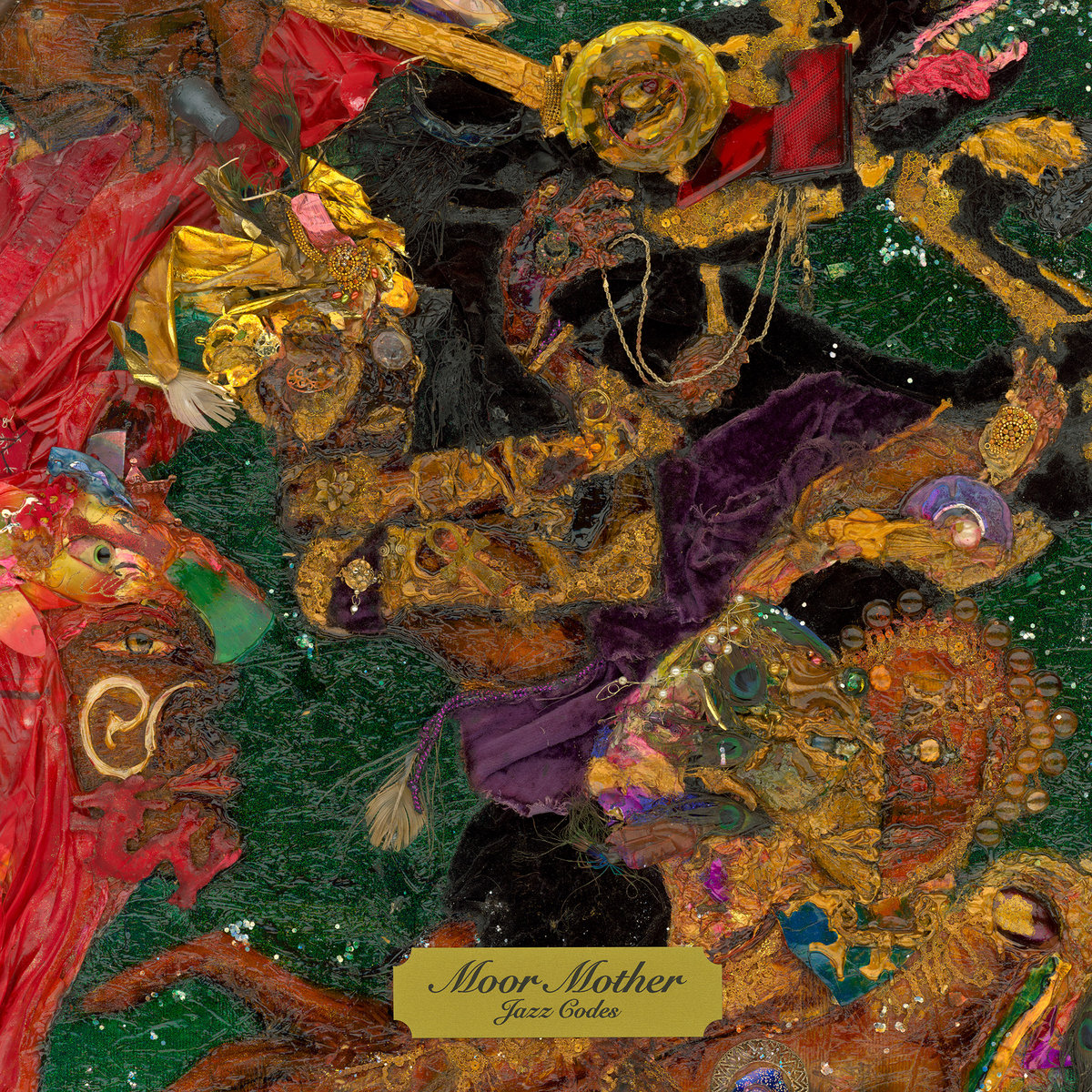Moor Mother
Jazz Codes
ANTI-
ABOVE THE CURRENT
Taking fullest advantage of the avant-garde jazz chops she’s practiced in service of saxophonist Roscoe Mitchell and the Art Ensemble of Chicago, Philadelphia-based spoken-word artist, composer, and instrumentalist Camae Ayewa—Moor Mother—has created a melodic tone poem with stunning clarity, calm, tuneful choruses, and lustrous complexity on her new album.
Jazz Codes is free and certainly noisy, and static is still part of her soundscape—one whose layered clutter made albums such as Black Encyclopedia of the Air, BRASS, and Fetish Bones worth reckoning. Ayewa utilizes sonic morass the way painters do clotted gobs of oil. Tracks such as “BLUES AWAY” with Fatboi Sharif and “REAL TRILL HOURS” featuring YUNGMORPHEUS are no less jagged and cutting than anything in Moor Mother’s catalog.
For much of Jazz Codes, however, those globs—not yet hardened or pointed—are malleable, fluid, and melodic in dedication to her jazz and blues heroes such as Amina Claudine Myers, Mary Lou Williams, Joe McPhee, and Woody Shaw. Welcoming a broader team of instrumental collaborators such as pianist Jason Moran, trumpeter Aquiles Navarro, flautist Nicole Mitchell, and harpist Mary Lattimore (to say nothing of free vocalists such as Wolf Weston, Orion Sun, Melanie Charles, and AKAI SOLO), tracks such as the aptly titled "SO SWEET AMINA" and “ODE TO MARY” flutter, as do many songs across Jazz Codes. Without using the dreaded word “soft,” much of the new album—and Moor Mother’s words within—are bathed in an amniotic fluid of soul as she connects the dots between her collaborators.
I’d hate to place Jazz Codes above any of Moor Mother’s past albums or singles, because this recording isn’t better, per se. What Jazz Codes does is offer Moor Mother an entirely new shelf for her improvisational expression.









